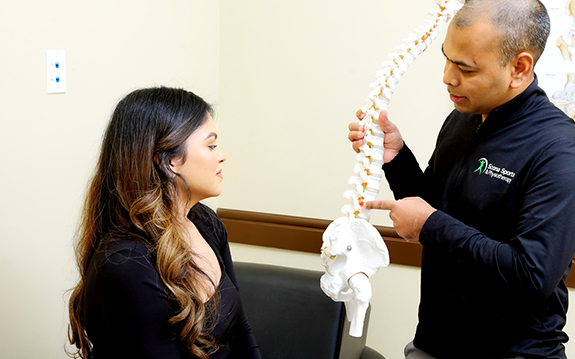Pain management provides relief so you can enjoy life. But treatment is complex and can lead to harmful effects if not properly administered and monitored. That’s why pain management may require the involvement of an anesthesiologist, a medical doctor who specializes in pain medicine. Learn about their services, including the types of pain they treat — and how.
There are many types of pain, and there is no one-size-fits-all treatment. That’s why it’s important to understand the differences and work with a physician who specializes in pain medicine and pain management.

- Acute Pain
- Chronic Pain
- Breakthrough Pain
- Bone Pain
- Nerve Pain
- Phantom Pain
- Soft Tissue Pain
- Referred Pain
There are various methods of pain management that healthcare providers use to relieve pain. These methods include medication, physical therapy, cognitive-behavioral therapy, nerve blocks, and surgery. The choice of pain management method depends on the type and severity of the pain, the patient’s medical history, and their personal preferences.
Medication is one of the most common methods of pain management. There are various types of pain medication, including nonsteroidal anti-inflammatory drugs (NSAIDs), opioids, and muscle relaxants. NSAIDs are often used for mild to moderate pain and inflammation, while opioids are typically reserved for severe pain. Muscle relaxants can be used to relieve pain caused by muscle spasms.
Physical therapy is another method of pain management. It involves exercises and stretches to help relieve pain and improve mobility. Physical therapy can be used to treat a variety of conditions, including back pain, arthritis, and sports injuries.
Surgery is sometimes necessary for certain conditions that cause chronic pain. For example, joint replacement surgery can be used to treat severe arthritis pain.
